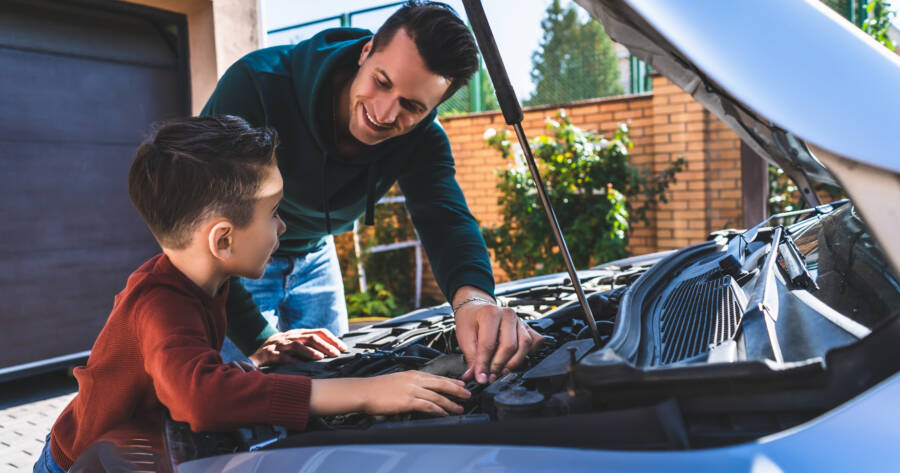- Routine maintenance is one of the biggest hidden costs of owning a car.
- With a little bit of elbow grease and online research, you can perform a lot of common car repairs all by yourself.
- A DIY spirit can save you hundreds (or thousands) of dollars over the lifespan of your vehicle.
Car repairs are a fact of life for drivers. Yet, studies show that many motorists struggle to afford professional services. A recent study by the American Automobile Association (AAA) highlights the financial challenges associated with auto repairs. According to the AAA, the typical auto garage bill runs $500 to $600 and can easily climb much higher. The AAA also found that about one-third of U.S. vehicle owners would need to go into debt to cover typical repair costs. Mechanics’ labor rates can climb as high as $215 per hour or more. Given these stratospheric numbers, it literally pays to perform basic repairs yourself. Here are 12 easy fixes you can do on your own to avoid a trip to a pricey repair shop.
12. Air Filter Replacement
Most cars have two air filters: one for the engine and one for the vehicle interior (cabin filter). This relates specifically to your engine air filter. If yours is clogged with pollutants, your vehicle’s performance can noticeably suffer.
Auto manufacturers recommend changing your engine air filter once every 15,000 to 45,000 miles. Doing so will improve your vehicle’s acceleration and fuel economy. As an added bonus, the extra bang for your gas mileage buck will save you even more money.
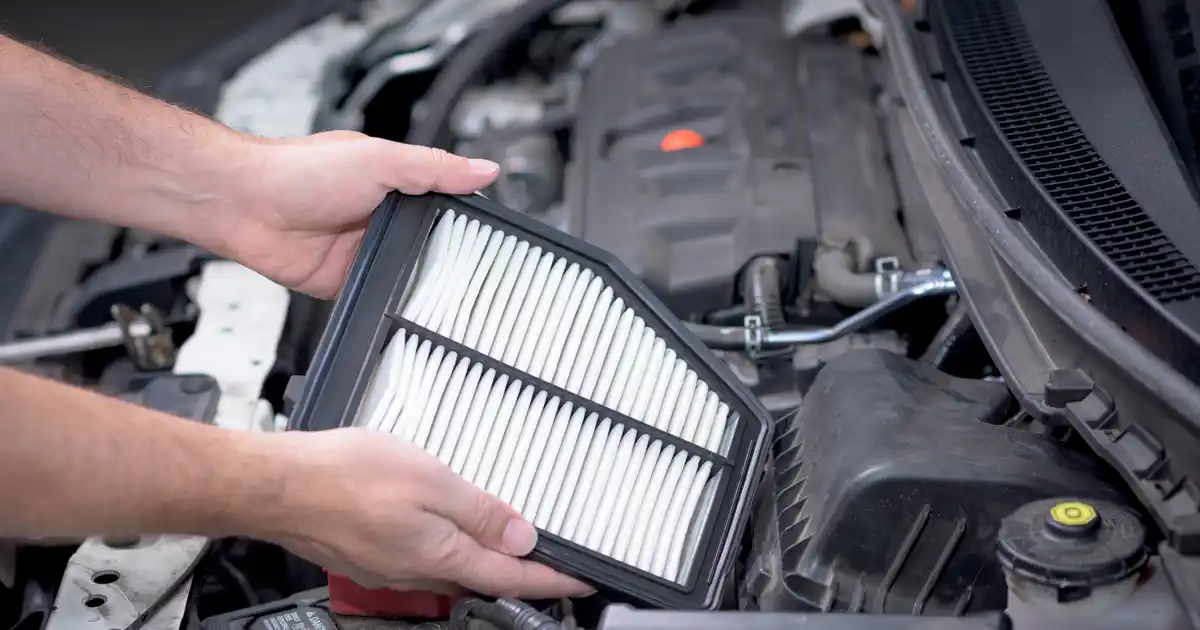 Shutterstock
Shutterstock11. Spark Plug Change
Spark plugs provide — wait for it — the electrical spark your engine needs to get going. If yours is faulty, your car won’t start. The good news is that spark plugs are cheap and very easy to change in most vehicles.
To change a spark plug, simply locate it and remove the coil-on-plug. Unscrew the old plug, put in the new one, replace the coil-on-plug, and start your engine.
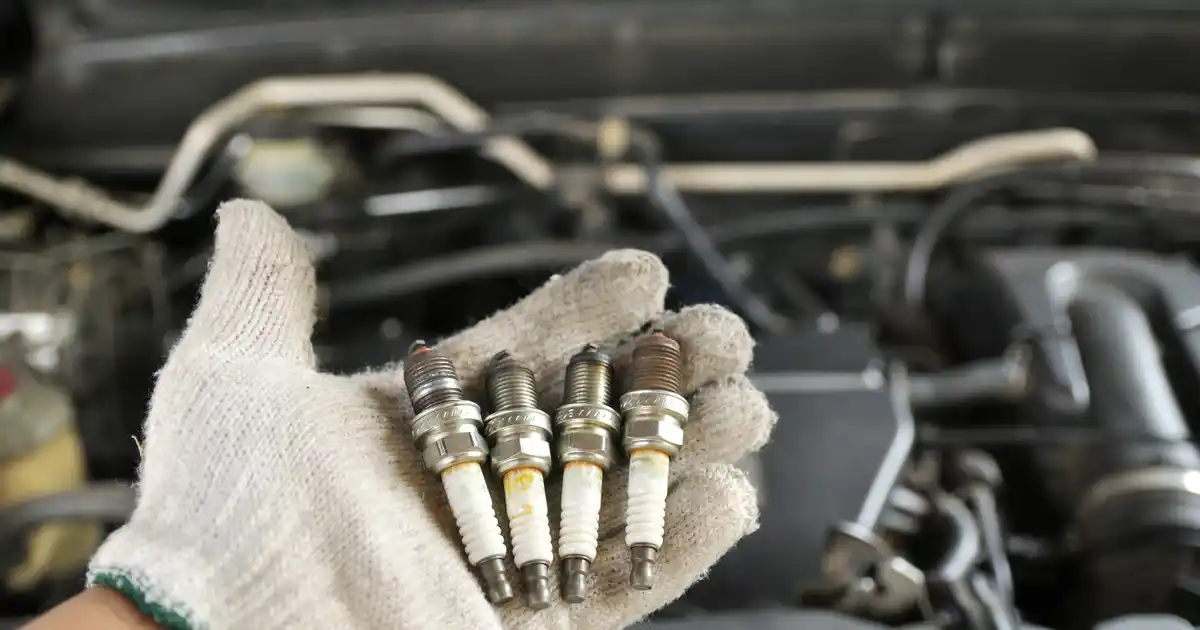 Shutterstock
Shutterstock10. Oil Change
Oil change recommendations begin at every 3,000 miles for older vehicles. For newer cars, guidance usually suggests changing your oil every 5,000 to 7,500 miles.
One problem is that some oil change places scam their customers into paying for extra services they don’t need. You can avoid this and save money by doing it on your own. Just make sure your car has been inactive for two to three hours before you start.
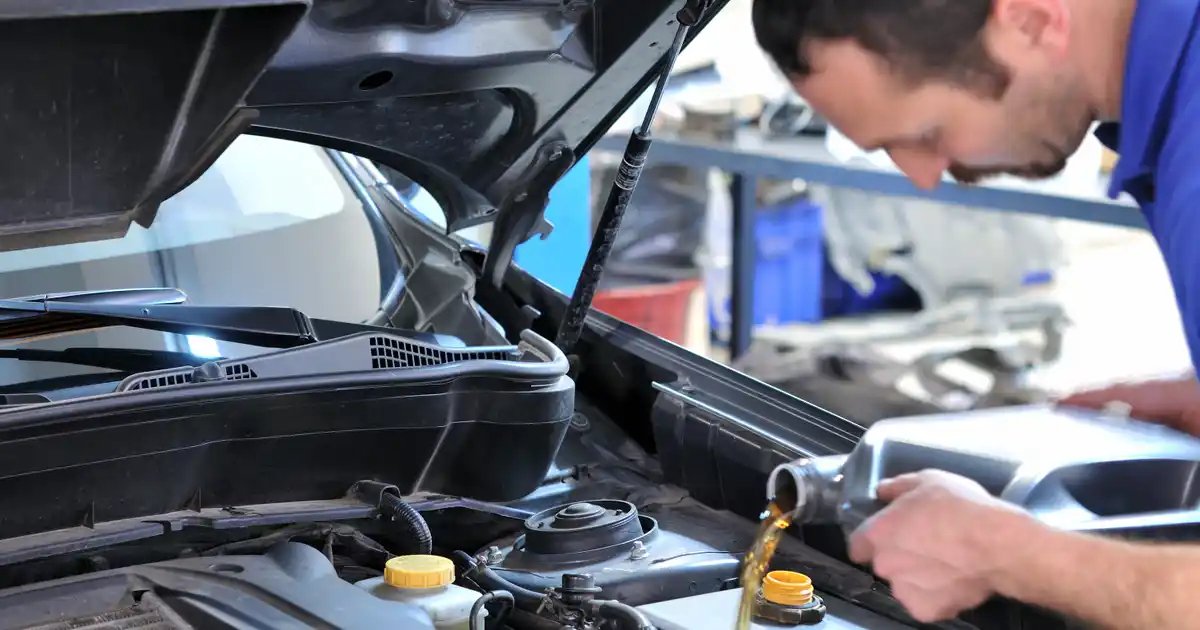 Shutterstock
Shutterstock9. Fuel Filter Change
Fuel filters play a vital role in the health of your engine. They remove impurities and particulate matter from gasoline before it enters your motor’s interior. These filters are also inexpensive and straightforward to change on your own.
One word of caution: you’ll need to release your fuel system’s pressure before replacing its filter. The method for doing this varies from one vehicle to the next. It’s an essential step, though. If you skip it, you risk damaging your engine or injuring yourself.
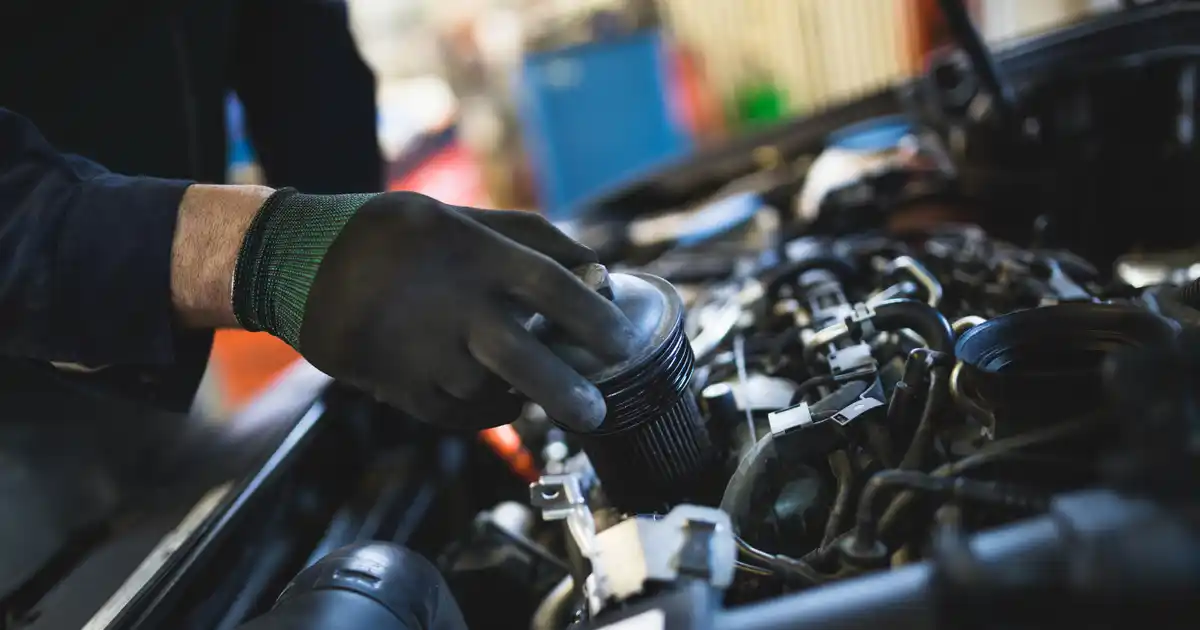 Shutterstock
Shutterstock8. Radiator Flush
Your car’s radiator is part of its cooling system, which prevents your engine from overheating. Experts recommend that you flush your radiator fluids every five years or 100,000 miles, whichever comes first.
With a cool engine, open the radiator cap and flush it out with distilled water. Then, top up your antifreeze to prevent blockages and buildups.
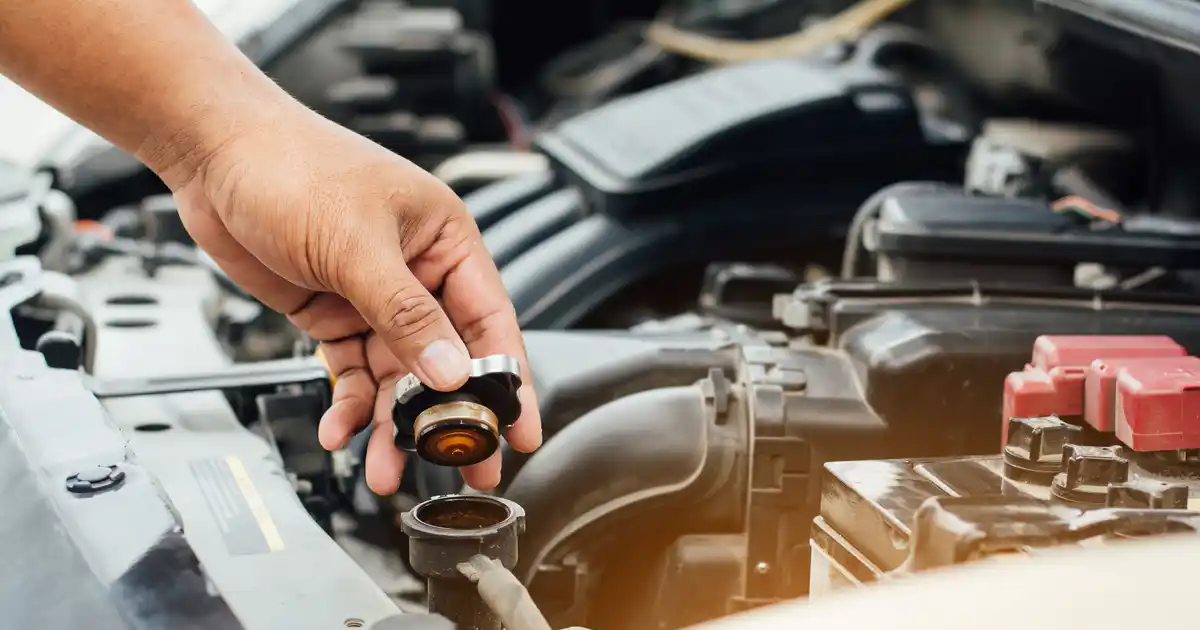 Shutterstock
Shutterstock7. Battery Change
Without a functioning battery, your car can’t do much of anything. It will struggle to start if it’s able to start at all. Your lights will be dim and many other vehicle systems will be sluggish. The good news is that changing a car battery is a beginner-level DIY task.
You’ll need drivers and wrenches that fit the fasteners keeping your battery in place. Simply remove the fasteners, take out the old battery, and replace it with a new one. Make the terminal connections, replace the fasteners, and you’re good to go.
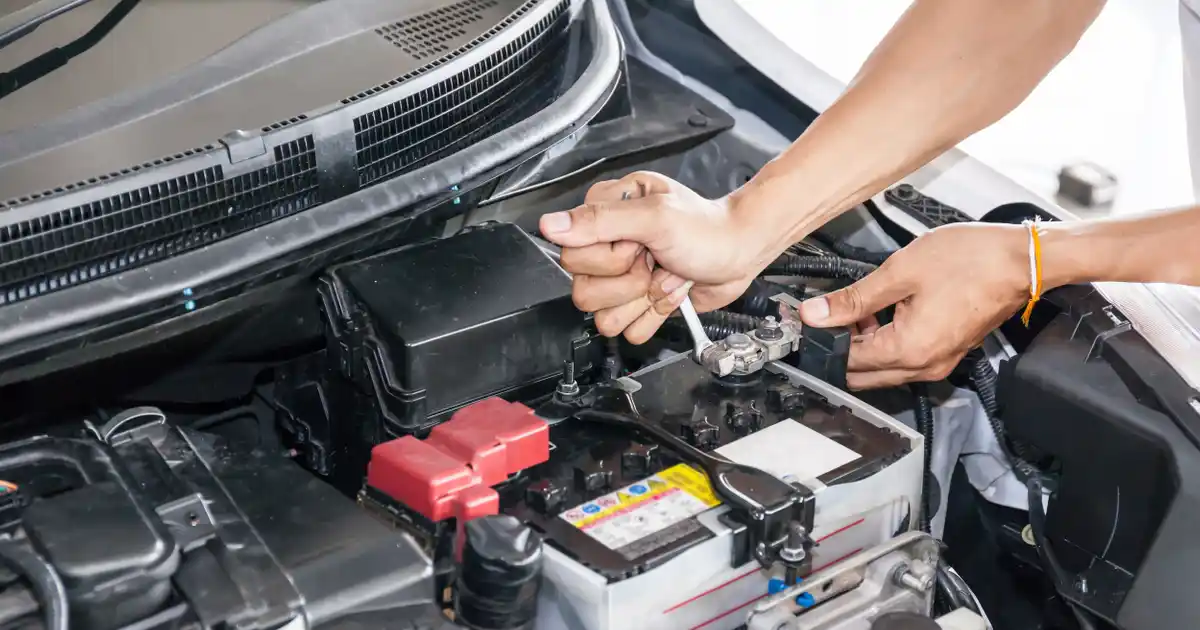 Shutterstock
Shutterstock6. Brake Pad Change
The telltale signs of worn-down brake pads are fairly easy to detect. If you hear grinding or squeaking noises when you press your brake pedal, chances are your pads need changing.
Changing your brake pads is a little more challenging than some of the other fixes featured here. Still, it’s one you can do on your own. You’ll need a level surface for working, a jack, and the know-how to remove your wheels. It’s straightforward from there: just loosen the calipers and open the retaining clips. Remove the worn brake pads, replace them with new ones, and reassemble.
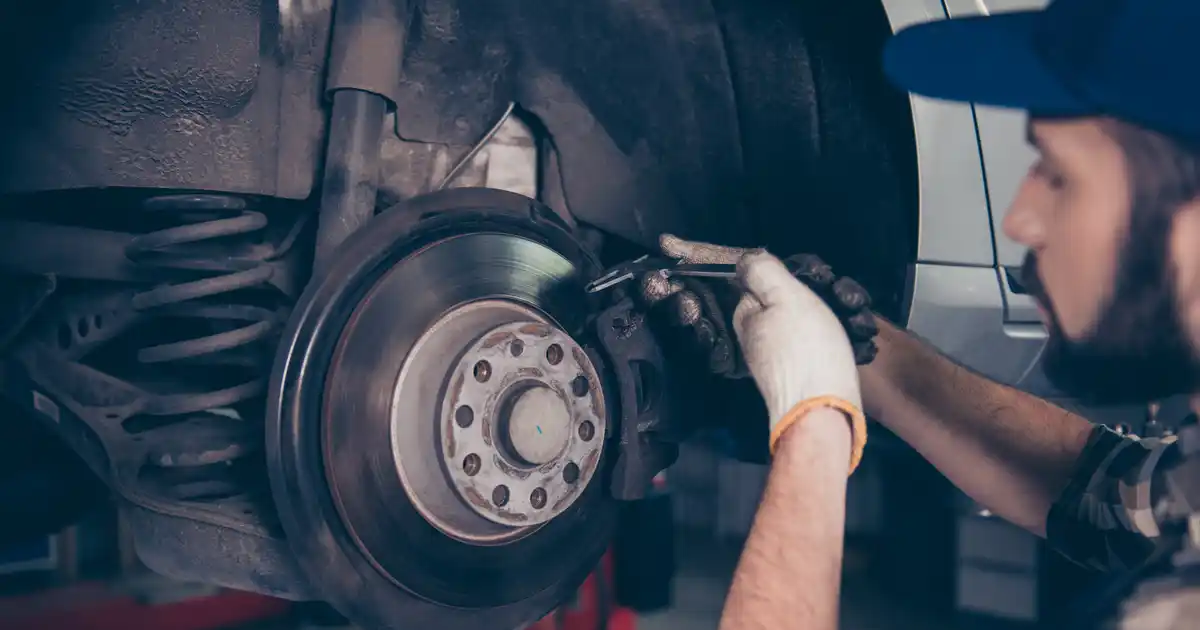 Shutterstock
Shutterstock5. Blown Fuse
Drivers usually become aware of a blown fuse when their headlights won’t turn on. To fix a faulty fuse, you’ll need to go into your car’s fuse box and find the worn-out component.
Most cars use three primary fuse types: blade, ceramic, and glass fuse. Once you’ve found the problem, determine the type of fuse that needs replacing. Your vehicle’s owner’s manual will guide you the rest of the way.
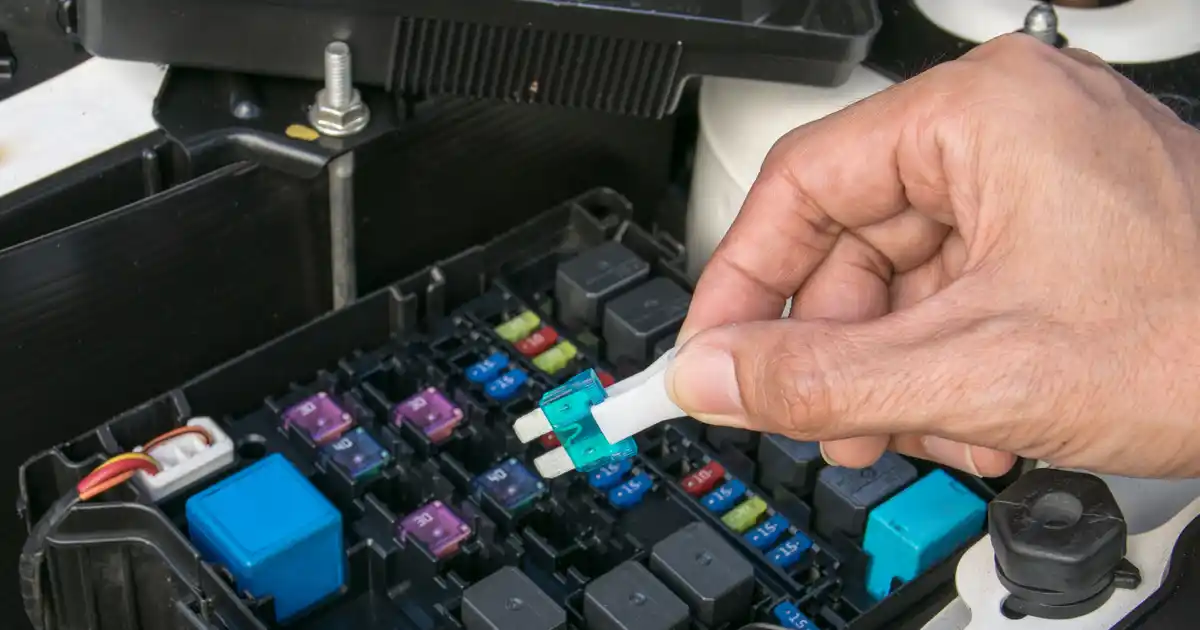 Shutterstock
Shutterstock4. Signal Relay Repairs
If your turn signals won’t work, chances are you have a problem with the relay setup. This is another easy issue to troubleshoot. Start by checking your owner’s manual to determine how your signal relay setup should look.
Then, compare your relay configuration to the optimal setup. Make the necessary adjustments to any misaligned relays you find. Your turn signals should then start working properly again if the relay was indeed the problem.
 Shutterstock
Shutterstock3. Tire Replacements
Changing your tires is fairly basic, though it does require some labor. You need to elevate your vehicle with a jack and remove the wheel. In most cases, unfastening up to six nuts is all you’ll need to do to get the wheel off.
Once you’ve replaced the tire, it’s a good idea to take your vehicle in to have the tires balanced. This is a quick process made much cheaper when you replace worn or flat tires yourself.
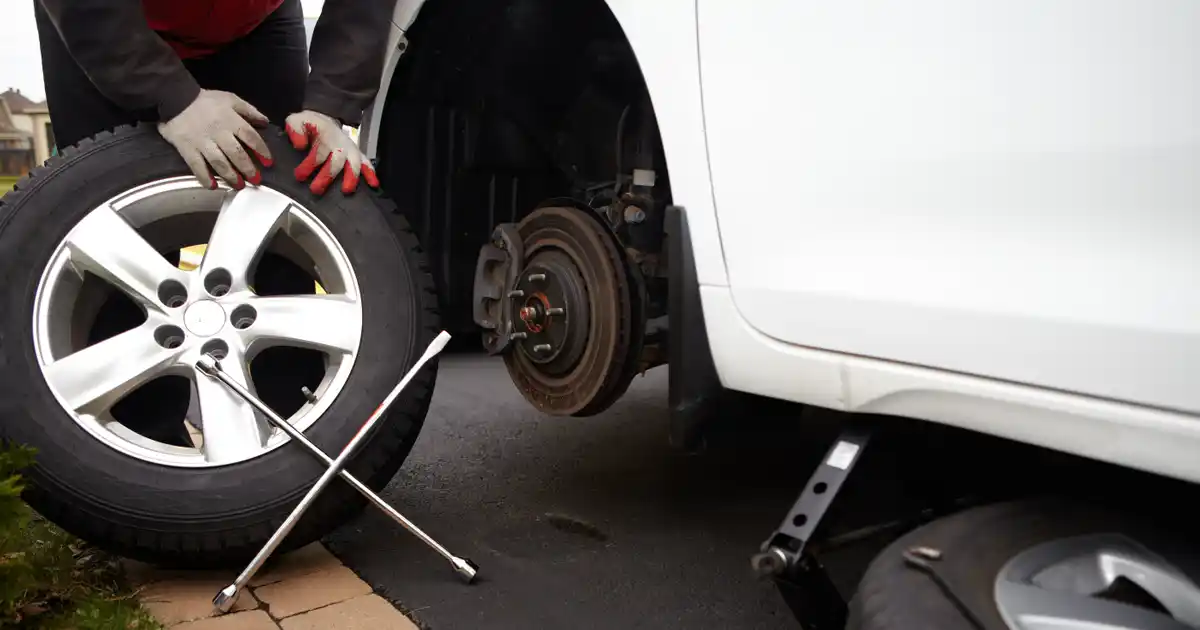 Shutterstock
Shutterstock2. Washer Fluid Top-Up
Driving without washer fluid can be dangerous, especially in low-visibility and winter conditions. The good news is that topping up your washer fluid is as easy as auto maintenance gets.
Simply pop open the hood, find the washer tank, and remove the cap. Refill the washer fluid reservoir and replace the cap. Test out your fluid before you hit the road to make sure it’s working, and you’re done!
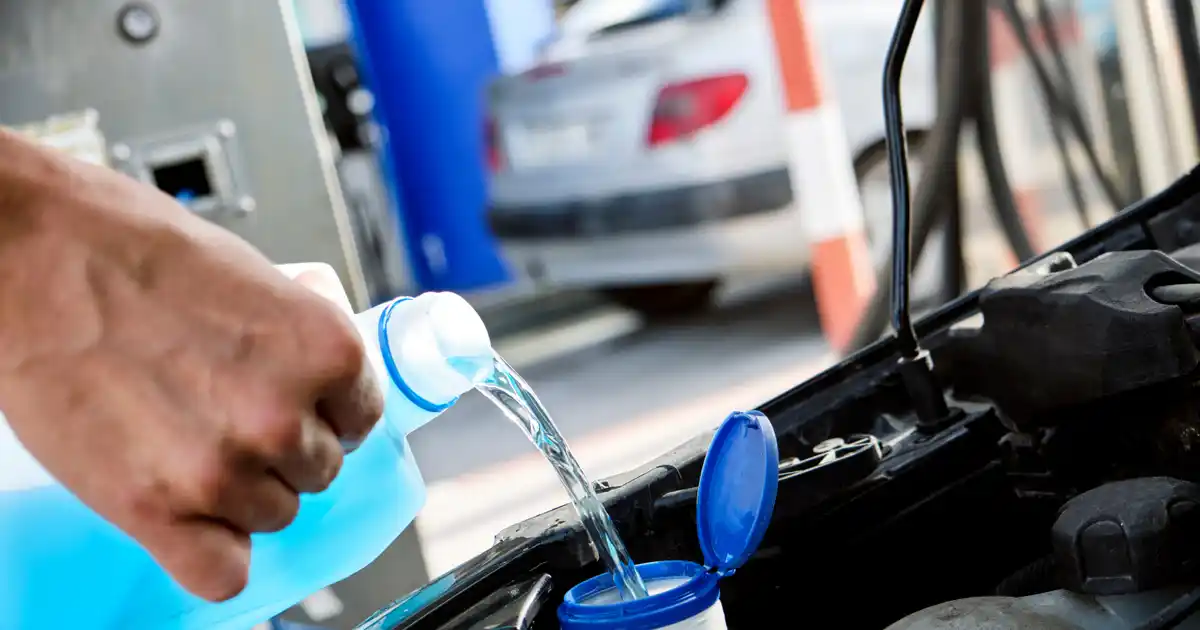 Shutterstock
Shutterstock1. Radiator Hose Change
Properly functioning radiator hoses regulate your engine temperature and cooling system pressure levels. If your hoses are loose or leaky, your engine can overheat and your coolant can drain.
Signs of wear and tear will be fairly easy to spot once you locate your radiator hoses. They’re usually kept in place by nothing more than screws and clamps, making hoses easy to remove and replace.
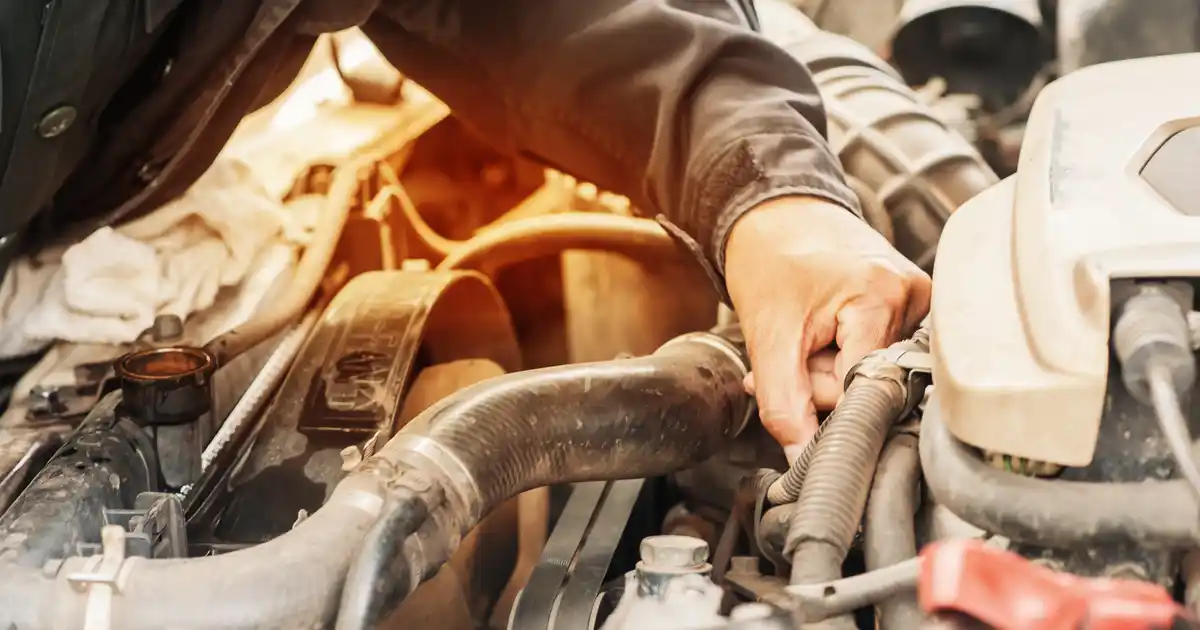 Shutterstock
ShutterstockBefore You Begin…
There are a few safety essentials to cover before you attempt any DIY auto repairs. First, make sure you have your vehicle’s owner’s manual on hand. If you can’t find yours, search online for a replacement copy. All you’ll need is your vehicle’s make, model, and year. The manual contains detailed, vehicle-specific instructions for carrying out all the tasks mentioned above.
Next, stock up on essential safety supplies. Safety glasses and gloves are both non-negotiable for any job. Super-absorbent shop towels, aprons, and complete tool sets will also come in handy.
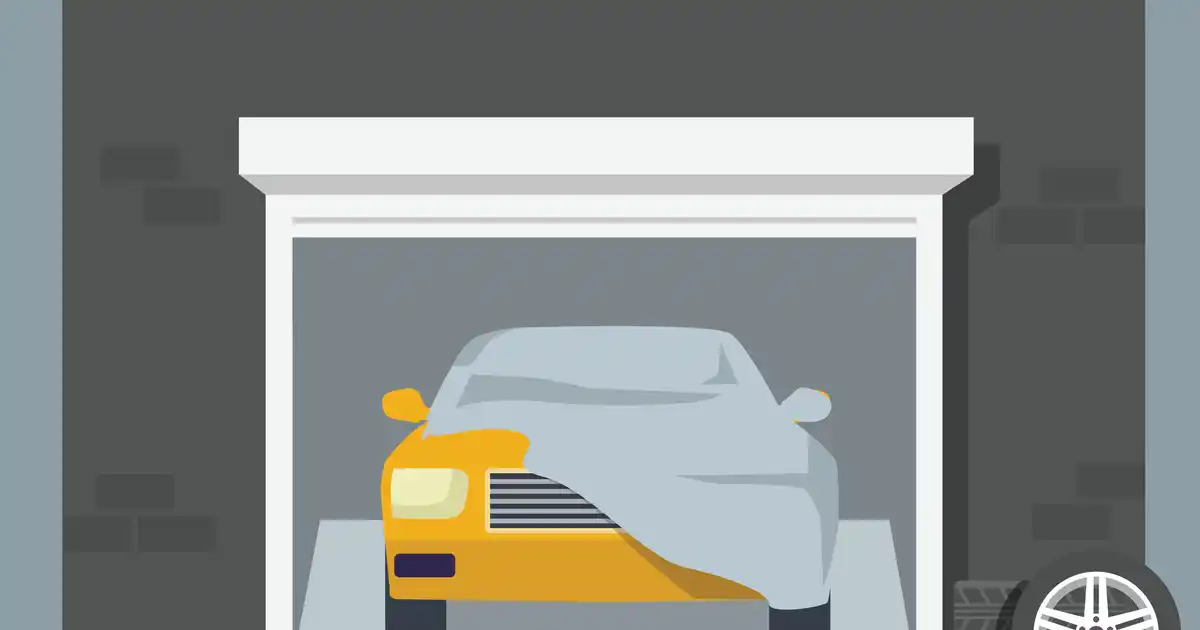 Shutterstock
Shutterstock